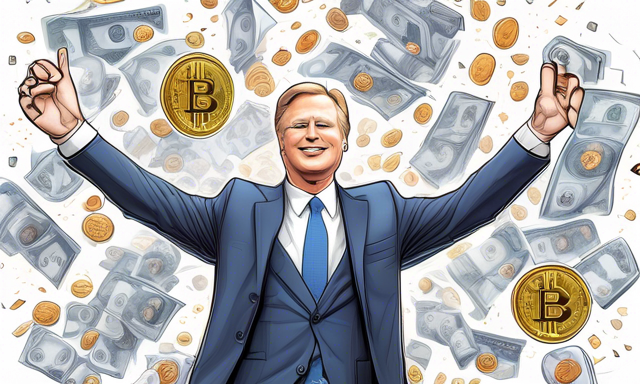Can Politics Shape the Future of Cryptocurrency?
So, let’s dive into this fascinating intersection of cryptocurrency and politics, shall we? As a young guy living in the vibrant world of crypto, I can tell you that what’s happening right now is not just a tech trend; it’s a full-blown strategic play. The upcoming midterm elections in 2026 are making waves in the crypto world, with big names, like venture capital firm Andreessen Horowitz (a16z) and Coinbase, opening up their wallets to bolster candidates who are friendly toward our beloved crypto ecosystem.
Key Takeaways:
- Significant financial commitments from crypto players such as a16z and Coinbase to political action committees (PACs).
- Fairshake PAC is focused on ensuring that crypto issues are represented in Washington by supporting candidates from both parties.
- A projected $200 million from the crypto sector aimed to influence favorable regulation.
- Bipartisan strategy shows a serious commitment to getting crypto-friendly policies enacted.
The Big Money Flowing into Politics
First off, let’s not overlook the numbers. a16z recently pledged more than $23 million to the Fairshake PAC, and Coinbase has thrown in a cool $25 million. All that means Fairshake now has over $30 million already committed and projections reaching nearly $200 million! Whoa, that’s some serious capital aimed at influencing the political landscape.
This isn’t just about buying influence but a long-term strategy to ensure that crypto is at the forefront of regulatory changes. If these groups can influence Congress to create favorable laws, that means a more sustainable and confident environment for investors like you and me.
The Fairshake PAC: A Game Changer?
So what’s Fairshake PAC up to? They’re not just distributing cash, but they’re playing a pivotal role in advocating for comprehensive regulations that can legitimize the crypto space. As Chris Dixon of a16z highlighted, they’re not just asking to roll back rules but are advocating for a framework that encourages innovation while flushing out bad actors.
Let’s be honest, nobody wants their investments to be tainted by fraud or questionable practices. A clear, well-structured regulatory environment can make a world of difference. Just think about it: stablecoins with clear regulations can stimulate competition. The clearer the rules of engagement in this space, the more trust it cultivates among new and existing investors.
Bipartisan Support: Why It Matters
Fairshake is strategically positioned to sway both sides of the aisle, supporting candidates from the Republican and Democratic parties. This approach is wise in a time when our political climate can be as turbulent as a rollercoaster.
Rick Claypool’s comments about this being a transactional approach make sense. It’s all about making sure that regardless of who wins, crypto interests are represented. That’s practical, right? We’ve seen industries collapse under scrutiny when they don’t have strong lobbyists or advocates in governmental offices—let’s not let crypto be one of them.
What Should Investors Do Now?
Now, what does all this mean for you as an investor? Well, first off, keep your finger on the pulse. Understanding the regulatory landscape is crucial. Here are a couple of practical tips:
- Stay Informed: Make it a habit to track crypto news closely, especially updates related to regulations and political moves affecting the industry.
- Engage with Communities: Join forums or discussion groups centered on crypto and politics. Hearing what others think can pinpoint areas you hadn’t considered.
- Diversify Your Investments: With changing regulations, having a diverse portfolio can help hedge against potential risks.
Personally, I feel pretty optimistic. When serious players put their money where their mouth is, it shows there’s faith in our industry’s future. The ever-evolving world of blockchain and crypto is beginning to be recognized, and that recognition can lead to valid and supportive frameworks.
Looking Ahead: Are We Witnessing a New Era in Crypto?
As we navigate through this political landscape, I can’t help but wonder: How will these moves influence public sentiment towards cryptocurrency? Will we see a wave of new investors coming in due to more stable regulations? It’s hard to predict exactly where this will lead, but one thing is for sure—keeping an eye on the intersection of crypto and politics has never been more critical.
So, what do you think? Are we on the brink of a new dawn for cryptocurrency regulation, or are we setting ourselves up for another rollercoaster? Let’s chat about it.





 By
By
 By
By


 By
By